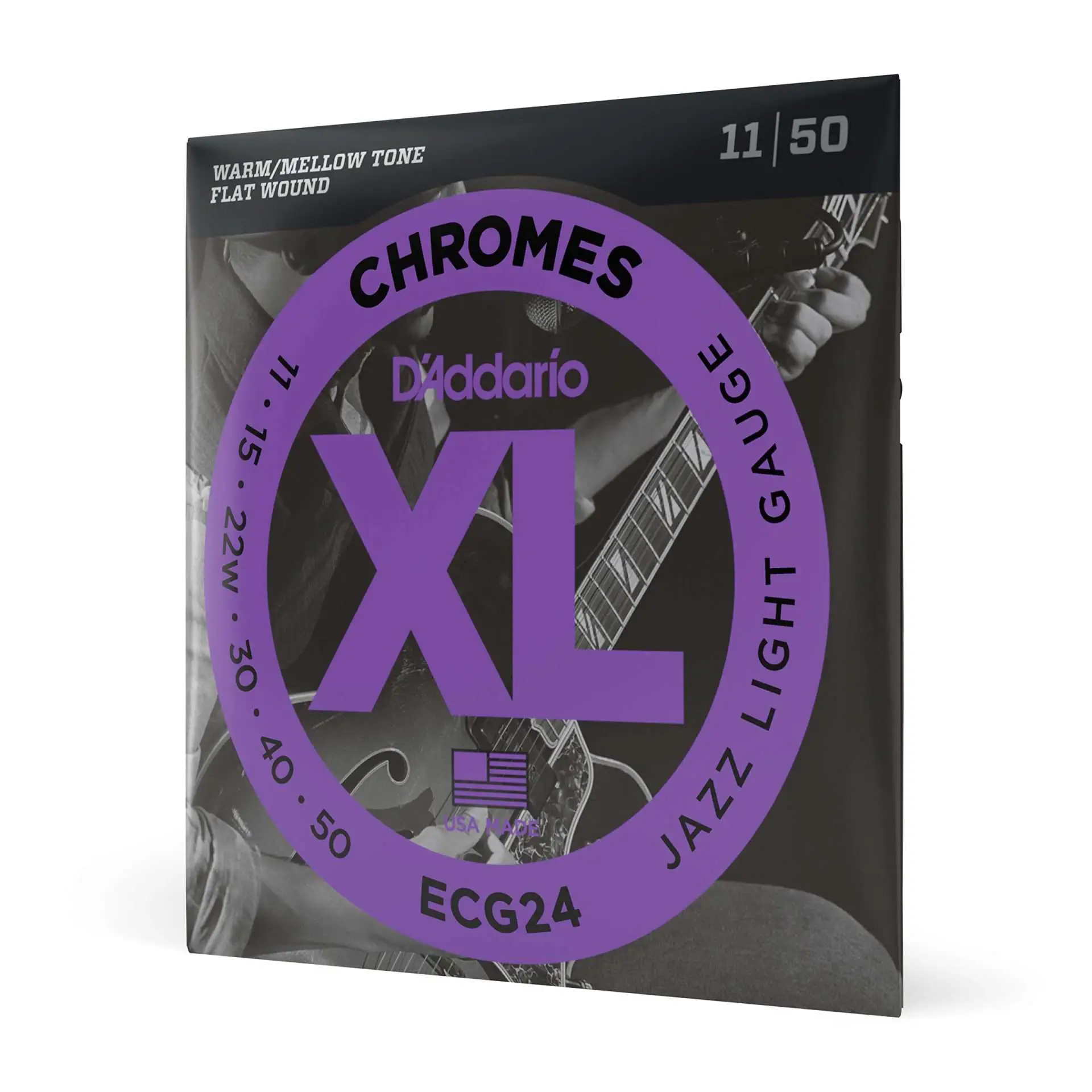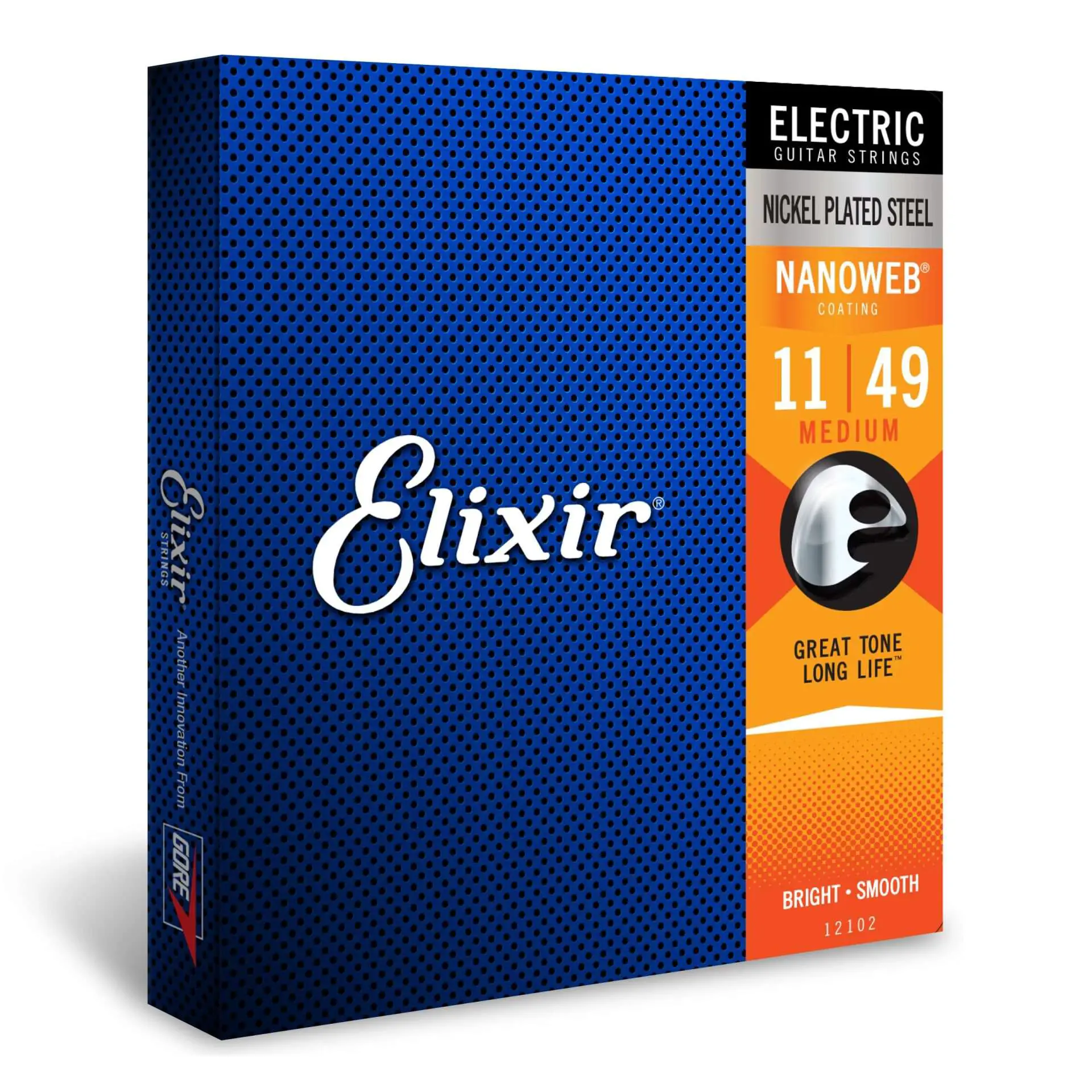Guitar strings are an integral part of a guitarist’s tone & playability, and finding the best guitar strings for Jazz is essential for any musician looking to capture the genre’s signature warmth, clarity, & depth. The unique sound of each jazz guitarist is partly shaped by their string selection. The Best Guitar Strings for Jazz, whether flat-wound or round-wound, can make a substantial difference, altering the subtle nuances of a player’s tone to suit the sophisticated soundscape of jazz music.
Jazz guitarists often prefer strings that provide a smooth, mellow tone suitable for the genre’s sophisticated melodies and complex harmonies. Flat-wound strings are commonly used because they offer a warm, rich sound with less finger noise, which is ideal for jazz’s intricate playing styles. They are also known for their comfortable feel, reducing finger fatigue during extended play.
When selecting the best guitar strings for jazz, it’s crucial to consider factors such as gauge, material, and string construction. Gauge affects playability and tone; heavier strings provide a fuller sound and greater volume, while lighter strings are easier to play and enable subtle nuances. Material and construction influence the string’s sound, durability, and the feel under the fingers.
Given the importance of these factors, we have meticulously researched and tested a range of guitar strings designed for jazz guitarists. Our findings aim to assist players in making informed decisions about which strings will best suit their playing style and tonal preferences.

Top Jazz Guitar Strings
In our search for the finest guitar strings tailored for jazz musicians, we’ve meticulously tested various brands and gauges to ensure that our recommendations help you achieve that warm, mellow tone synonymous with jazz. Our selected strings promise durability, playability, and the clarity that jazz guitarists value. Whether you’re a seasoned jazz enthusiast or embarking on your jazz journey, the following strings are sure to enhance your playing experience.
D’Addario XL Flatwound Chromes

We find the D’Addario XL Chromes are a top choice for jazz guitarists seeking a warm, mellow sound with a comfy playing feel.
Pros
- Provides a notably smooth playing experience
- Warm and mellow tonal characteristics ideal for jazz
- Highly consistent in quality and durability
Cons
- Higher tension may require guitar setup adjustments
- Might lack brightness for players who prefer brighter tones
- Pricier than some other string options
As someone who loves the mellow, velvety tones of jazz guitar, I’ve recently had the pleasure of stringing my guitar with D’Addario XL Chromes. The first thing that struck me was the luxurious smoothness under my fingertips. It was like my guitar had undergone a transformation, now offering an ultra-sleek surface that made those intricate jazz chords and licks glide effortlessly.
Not only did the strings feel great to play, but the sound was spot on for the genre. There’s this warmth and depth in the notes that really fill the room, capturing the quintessential jazz vibe beautifully. Chords ring out with a rich composure, and solo lines sing with a sonorous quality that’s just fulfilling to hear.
Durability often comes into question with guitar strings, as we need strings that can keep up with frequent rehearsals and gigs. Our experience with the XL Chromes is commendable on this front. They maintain their tuning stability and unique tone for long stretches, ensuring that we spend more time playing and less worrying about string fatigue. We’ve bent them, thrashed them, and put them through the rigors of jazz playing—yet, they stand strong.
That said, these strings do bring a level of tension that some might find requires a bit of tweaking on their instrument. Setting up the guitar to accommodate thicker strings might be necessary, particularly to keep the action comfortable and the intonation accurate. For those who favor a crisper, brighter tone, these might not be the best match either—the focus here is on warm and mellow.
Despite being on the pricier side of the market, we consider the investment in D’Addario XL Chromes a wise one for any serious jazz guitarist. The quality justifies the cost, providing an authentic jazz tone that’s as reliable during a late-night gig as it is during a lazy afternoon practice session.
Thomastik-Infeld Jazz Swing Flatwounds

We find these strings to be a superb choice for the jazz guitarist, offering a perfect blend of smooth feel and rich tone.
Pros
- Exceptional tonal quality for jazz guitarists
- Long-lasting with proper maintenance
- Smooth playing experience with minimal finger noise
Cons
- Higher price point compared to some brands
- Limited bending ability due to flatwound design
- May not suit players looking for brighter, more piercing tones
Since the first strum, the Thomastik-Infeld Jazz Swing strings resonate with a rich, full-bodied sound that’s ideal for bluesy riffs and complex jazz chord progressions. With a velvety feel under our fingertips, they allow for slick movement across the fretboard, offering the kind of playability that elevates our performance.
During an extended session, we appreciate the way these strings maintain their tone, proving to be incredibly resilient, which can save money in the long run—despite their initial upfront cost. We’ve also noticed they excel in delivering that classic jazz tone, with a depth and warmth that brings a vintage character to modern play.
As we cycle through our repertoire, we encounter the limitations inherent in most flatwound strings. The Thomastik-Infeld Jazz Swing set doesn’t lend itself to aggressive bends or ultra-bright tones. However, these characteristics are seldom required in traditional jazz genres, and what they offer instead is an authentic, soulful sonority that truly complements jazz improvisation and rhythm playing.
Dean Markley Jazz Strings

After our recent jam session, we feel jazz enthusiasts would appreciate these strings for their expressive tone and durability.
Pros
- Reliable tuning stability
- Resilient to frequent use
- Crisp, clear tonal quality
Cons
- Individual strings are not color-coded
- Might be pricey for budget-conscious musicians
- Limited flexibility for bending notes
Just strung up my semi-hollow body with the Dean Markley Nickel Steel strings and the first thing that stood out was how quickly they settled in. These strings have a remarkable ability to maintain pitch, keeping those extended jazz improvisations sounding sweet without the constant need to retune.
Another plus is their resilience. During our rounds of testing, we’ve found these strings can take the heat of regular gigs and lengthy practice sessions, showing very little sign of wear. This is particularly important when you’re deeply invested in developing your sound and require strings that can keep up.
What I also admire about these strings is their tonal clarity. Each note seems to articulate well, from the warm lows to the sparkling highs, making complex chords and solos come alive. The balanced tone works perfectly for jazz, where expression and nuance take center stage.
Elixir Medium Nanoweb Strings

We often recommend the Elixir Medium Nanoweb strings for their consistent performance and dependability for jazz guitarists.
Pros
- Resistant to corrosion, preserving the strings’ sound over time
- Remarkable tuning stability and longevity
- Bright tone with a comfortable feel
Cons
- Higher price point compared to some non-coated strings
- May not suit players who prefer a very traditional uncoated string feel
- Specific tone may not align with all jazz styles
After stringing up my guitar with these Elixirs, the first strum revealed a bright and vibrant tone. The medium gauge offered a strong presence that easily filled the room—a crucial factor for articulated jazz melodies. The Nanoweb coating provided a slick feel under my fingers, easing those complex jazz chords and runs.
In the multitude of gigs since, what’s impressed me most is the tuning stability. These strings hold their pitch through long sessions, saving precious time during performances. Moreover, despite playing in a variety of environments, the dreaded tone-deadening “gunk” buildup hasn’t been an issue. The protective coating does its job, extending the life of these strings notably beyond others.
As with all our string tests, string choice is subjective, but we’ve featured Elixir’s Nanoweb strings many times as our go-to for coated options. Whether I’m digging into a bluesy riff or experimenting with complex harmonic structures, the clarity and longevity of these strings make them a reliable choice for serious jazz guitar players.
Buying Guide
Material Choices
We have several materials to choose from when selecting strings for jazz guitar play. Common options include:
- Nickel-plated steel offers a balance between warmth and brightness, suitable for a clear jazz tone.
- Pure nickel strings provide a warmer and softer sound, favoring a vintage jazz feel.
- Stainless steel yields a crisp and bright tone, though it may not be the preferred choice for traditional jazz tones.
Gauge
The thickness of the strings affects playability and sound. Thinner strings (lighter gauge) are easier to play and bend, while thicker strings (heavier gauge) provide a fuller, richer sound.
| Gauge Type | Thickness | Tone |
|---|---|---|
| Medium/Light | .010 – .047 | Brighter |
| Medium | .011 – .050 | Balanced |
| Heavy | .012 – .054 | Warm, Full |
Core Type
Strings come with either a hex core or round core.
- Hex core strings are more modern and offer a brighter tone with snappier tension.
- Round core strings give a vintage feel with a more mellow sound and less tension.
Winding Method
- Roundwound strings are common and have a textured feel, offering bright, clear tones.
- Flatwound strings are smooth and favored in jazz for their mellow, dark sound and reduced finger noise.
Coating
Some strings feature a coating that extends their life by protecting against corrosion. However, coated strings might have a slight difference in feel and sustain.
Price Considerations
We aim for a balance between quality and budget. Higher-priced strings are often more durable and offer better sound quality, but it’s crucial to evaluate whether they provide value for our specific needs.
Sustainability
Finally, consider environmentally friendly options with recyclable packaging or eco-conscious manufacturing practices to support sustainability.
